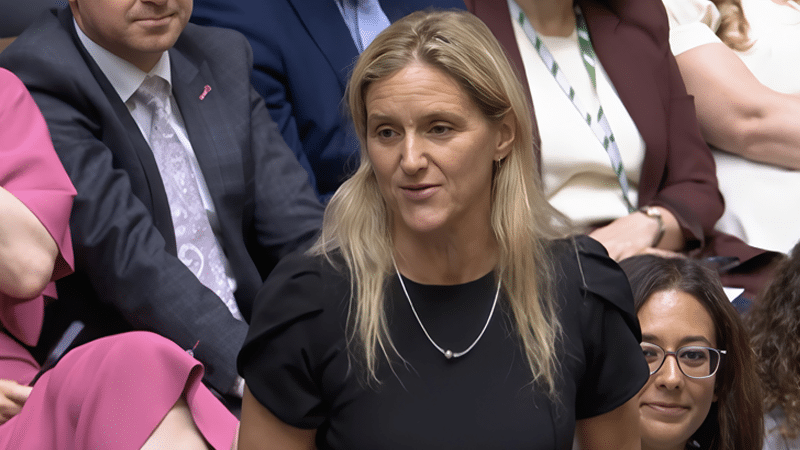Support for Kim Leadbeater’s dangerous assisted suicide Bill is eroding, after she scrapped a measure she had repeatedly described as the ‘ultimate safeguard’.
The MP for Spen Valley had said a High Court judge would need to approve a person’s request to be killed. After being told such plans were unworkable, she has now proposed downgrading it to a panel, which would include a social worker and a psychiatrist.
A committee of MPs is currently in the process of considering amendments to the Bill, with 300 changes already proposed and more expected. The House of Commons will have another opportunity to vote down the Bill within the next few months. In its current form, it would allow terminally ill patients in England and Wales who have less than six months to live to receive help to kill themselves.
Safeguards dropped
Conservative MP Danny Kruger, who is on the Committee, said: “Approval by the High Court – the key safeguard used to sell the Assisted Suicide Bill to MPs – has been dropped. Instead, we have a panel, NOT including a judge, of people committed to the process, sitting in private, without hearing arguments from the other side. A disgrace.”
Florence Eshalomi, a Labour MP, wrote on X: “The key safeguard that was used to persuade MPs who raised valid questions about the bill has now been dropped. To say this is worrying is an understatement.”
Tim Farron, a Liberal Democrat MP, posted on social media: “Lots of MPs voted for the bill at 2nd reading in the expectation that there would be stronger safeguards added at committee stage… and yet we now see that even the weak safeguards that existed, are being dropped.”
Amendments
An amendment proposed by Liberal Democrat MP Tom Gordon seeks to extend the access to assisted suicide to those with 12 months to live, if the patient has a neurodegenerative illness.
Sir Nicholas Mostyn, a former High Court judge who has Parkinson’s disease, was chosen to give evidence to the assisted suicide Committee. He urged a “redefinition” of terminal illness, and stated: “You should get permission to have an assisted death if you are suffering intolerably within five months of death or seven months of death. There shouldn’t be this arbitrary line.”
One of the committee members commented: “We were promised that a slippery slope wasn’t possible, but we’re already seeing supporters of the Bill chipping away at the safeguards presented to the House at Second Reading.”
‘Urgent concerns’
The National Down Syndrome Policy Group wrote an open letter calling on Parliament to address its “urgent concerns” regarding assisted suicide.
The letter critiqued the “inadequate engagement” with marginalised groups at risk of assisted suicide, stating that elderly and disabled groups were “blocked” from giving evidence.
It also warned that legalising assisted suicide would “devalue” the lives of disabled people and reinforce harmful “misconceptions” about their quality of life.
Another concern raised was the disproportionality of impact: “The bill prioritises end-of-life options for a relatively small number of terminally ill people over the many thousands the legislation puts at risk”.

Assisted suicide bill: 10 key moments from day 1 of Committee scrutiny
Psychiatrists: ‘Leadbeater Bill undermines suicide prevention’
Stark warning on assisted suicide Bill: ‘I could have killed myself when I wasn’t terminally ill’

